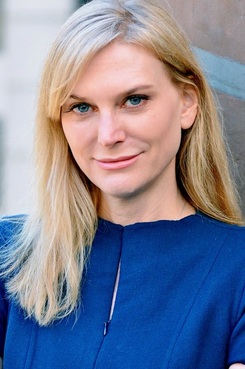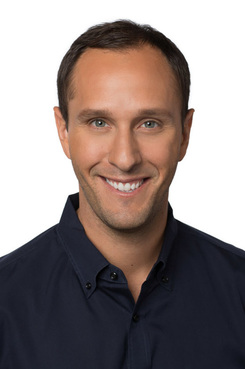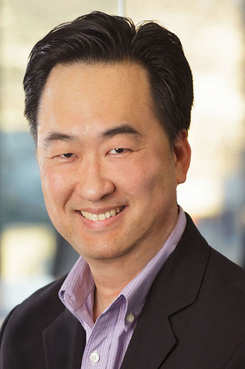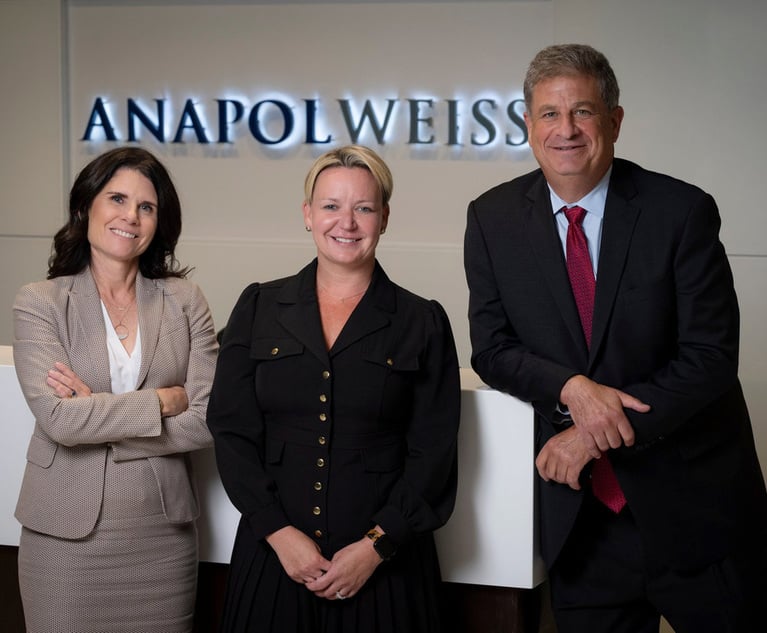Thinking of Ditching Big Law for a Startup? Read This First
Andrew Dick, Catherine Krow and James Lee all put Big Law careers behind them to become entrepreneurs. The Recorder caught up with the trio to discuss some lessons they've learned.
April 13, 2018 at 12:50 PM
13 minute read

It might still strike some as a surprise when a lawyer decides to leave a large firm—and the stability of a regular paycheck—for a technology-focused startup with presumably higher risks.
But for some Bay Area-based lawyers, the call of entrepreneurship is one they cannot resist. Many are motivated by the opportunity to test out new business strategies, while others are convinced that their products will give them a first-mover's advantage in an ever-changing market for delivering legal services.
Andrew Dick, a former associate at Gibson, Dunn & Crutcher and Morrison & Foerster and the founder of his own small transactional firm, last year launched Select Counsel, an online platform that allows clients to search through a curated network of independent boutiques across the country.
Catherine Krow, a former partner at Orrick, Herrington & Sutcliffe, has created Digitory Legal, a budget-management prediction tool that allows law firms and in-house legal departments to better predict costs and estimate demand for certain matters.
James Lee, a litigator at Quinn Emanuel Urquhart & Sullivan before starting his own litigation boutique called LTL Attorneys, has founded artificial intelligence startup LegalMation, which is able to automate many key tasks in the early stages of litigation. (Lee, who recently spoke with Law.com about AI and the law, just saw Walmart Inc. sign up to use LegalMation.)
The Recorder caught up with these three entrepreneurs for a roundtable chat about why each of them chose to start their own enterprises, as well as some tips they might have for other lawyers thinking of leaving Big Law to launch endeavors in the legal technology space.
Why did you decide to leave Big Law? How did you get involved in legal technology?
Dick: After practicing as a corporate associate at Gibson Dunn in New York and then Morrison & Foerster in San Francisco, I left to start my own firm in 2013. I wasn't interested in a career at a big firm and figured that starting my own practice would give me the flexibility to explore opportunities, while still practicing law and earning a living. I assumed my next step would be to join one of my startup clients as GC or some other tech startup in the Bay Area. I never expected to start my own company. But as my law practice unfolded, I stumbled on an idea that I believed had some legs. I discovered that larger clients, particularly those accustomed to working with big firms, really appreciate a lawyer who has the big firm training and experience, but who can operate with the efficiency and cost-effectiveness of a boutique.
I found that I was not the only one doing this and that all over the country, and all over the world, lawyers were leaving Big Law for boutiques. My idea was fairly simple: Let's aggregate the collective expertise of all these great lawyers onto a platform so that clients can quickly access the precise expertise they need, wherever they need it, through highly efficient boutiques. In doing so, you can create a model for delivering legal services with all the benefits of a big firm in terms of quality of lawyers, practice area breadth and geographic footprint, but with the efficiency and flexibility of a boutique.

Krow: A few years ago, I realized the legal profession needed to evolve. Law departments were, and are, under tremendous pressure to reduce budgets and obtain the best value possible from outside counsel. Legal operations and legal procurement had begun applying an unprecedented level of business discipline to the legal industry. To succeed in this market, I believed that law firms would need to carefully examine their processes, adopt new technology and make some significant changes to better meet the business needs of their clients. For me, all this change presented an opportunity to do something new and exciting that would advance the legal profession. After 17 years of practicing law and many years as a partner at Orrick, I left to develop technology that would help law firms and clients succeed in the modern market.
Lee: When I left Quinn Emanuel, I left with a few people to start a litigation boutique that would allow us to do more interesting work. We realized that, as a smaller firm, we have to use a lot of technology to be more efficient and more effective. So where most firms would use papers, postages and highlighters, we are using a lot more interesting technology. About two or three years ago, we started to look at AI as a means to further differentiate ourselves, and to see how we could utilize it in our practice. When we developed and then showed our product to other litigators, their jaws just dropped. That's how we knew that we have something that could really disrupt the entire industry. We decided to focus on developing the types of AI solutions that could really change the entire landscape of litigation.
Do you all still practice law? What are each of your roles?
Dick: I no longer practice law, as I run Select Counsel full-time and wear multiple hats from sales to marketing to membership services. It has been a pretty dramatic change. I rely heavily on my legal background, as I spend most of my day talking to lawyers about the practice of law—whether it's with one of the lawyers in the network about their practice or speaking with a GC about their outside counsel hiring needs. Having worked in big and small firm settings helps me understand and appreciate a client's needs and how they can best leverage the attorneys in our network. Marketing is also a core component of what I do and in today's world it's all digital.
We are implementing various digital marketing strategies and heavily focused on social media. Lastly, I manage the membership aspect of Select Counsel, which is as much an internal membership organization and legal community as it is a client-facing service. I organize networking events, manage our discussion platform and negotiate vendor partnerships to obtain discounting on everything from insurance to legal [software as a service] offerings.
Krow: I no longer practice law. Instead, I help law firms and corporate legal departments solve business problems. As our CEO, I am responsible for creating the platform and executing on our objectives. I also frequently present, write and consult on issues of legal cost management and fee structures.
Lee: I am still involved with the law firm because we consider it the test kitchen, but I am really focusing on legal tech. I help with the strategy and direction of the company, as well as promoting what we do. My role includes being an evangelist for AI, leading the adoption of AI in legal practice and other business industries, and finding ways to do very high-level work repeatedly at a very low cost.
What are some of the challenges you have faced as a tech startup founder? Was the transition difficult?

Dick: Unlike practicing law, which is largely based on precedent, there is no playbook when you're trying to create something that hasn't been done before. Each time I make a strategic decision and commit the company to a certain initiative or undertaking, it costs time and resources and can't easily be undone. I do as much research as I can, lean on my advisers and try to trust my instincts. But you never really know if you're making the right call.
For example, I've committed Select Counsel to rolling out 25 weekly CLE programs starting in May. I'm doing this because I believe there is a gap in the market for in-house oriented CLE and a big opportunity to attract corporate legal departments to our CLE programs, exposing them to our network. For a small company like ours, this is a huge investment of time and money, so fingers crossed that it pays off. I'd say the pressure to constantly make smart decisions and allocate your resources as best you can is the toughest challenge I face as a founder, but it's also exciting.
Krow: The greatest challenge was finding the right people to implement my ideas. Although I had a clear vision of what I wanted to build based on my industry experience, I am not a coder. When I found the amazing development team we have today, that piece of the puzzle fell into place. Leaving Big Law to found a company is challenging because you have no support when you start out. One example: I was not very skilled at PowerPoint while I was practicing law; however, as a CEO, I am constantly presenting and had to master PowerPoint quickly. There are a million other examples of learning new systems, creating work flows and processes, and just rolling up your sleeves to figure things out. I wouldn't change a thing, though. There is nothing more rewarding than building a company from scratch.
Lee: I don't think the transition was very hard because I was a self-starter. I know that a lot of lawyers have fears around starting their own firm or business, but they shouldn't. It is hard work, but it is extremely gratifying and very doable.
What advice would you give to other lawyers or recent law school graduates who are also interested in getting into legal technology?
Dick: What I am doing stems directly out of my personal experience. [That] gave me the understanding and context to pursue this venture. My advice to others is to go after something in an area that you know and understand personally. If the issue is important to you, you'll be passionate about it and you'll need that to get you through the challenges and setbacks every founder faces. You'll also need that passion to convince others to buy into your idea. Pursuing something that you know personally will also reduce some of the risk. If you are trying to address a problem that you know exists because you've experienced it first hand, then you're in a unique position to solve it, which gives you a greater chance at success over an outsider looking in.
Krow: First, spend some time learning what legal tech is out there right now. There is a great directory of legal technology providers published by Above the Law, so I would start there. If you are building something yourself, the first question you must be able to answer is, 'Is it needed?” If the answer is yes, the next question is, “Who are your competitors and how are you different?” You should also understand the competitive landscape if you are applying for jobs at legal tech companies.
Lee: One thing I would say is 'don't be afraid,' because it is very doable, but I think you need to find the right people to get involved with. If there is a need, there is a way to fill it. Basically, assembling the right team to come up with the right solution to solve that need is the best advice I could give.
How much do you charge for services? Are you making a profit?
Dick: Currently, our revenue model is based solely on membership fees that the lawyers in the network pay, which is $85 per month, or slightly over a thousand dollars per year. We currently have about 350 lawyers subscribed to our service and membership is growing steadily. We have a few additional revenue models that we plan to roll out as we go, but revenue is secondary to our primary objective, which is to gain traction and brand awareness and position Select Counsel as the go-to platform that corporate clients turn to for high quality boutique counsel.
Krow: We currently have hundreds of users on the single-user platform that is available through our website, including users at Am Law 100 firms and Fortune 500 companies. We just released our enterprise-level system, which is designed for larger firms and corporate legal departments, and have already signed top-tier firms to that platform. We also announced our billing data analytics services at the ABA Techshow, which is a very exciting and deeply needed service. The response to that announcement has been overwhelming. We have a subscription pricing model based on the number of users and number of matters. A base level guideline for enterprise users is $100 per user per month, but we provide enterprise license quotes after discussion with customers about their needs.

Lee: It depends on the level of litigation complaints we are processing. It can range anywhere from the low- to mid-hundreds. We have two or three users about to sign on to what we call the implementation phase. We have started to generate a little bit of revenue from the preliminary testing with clients, but we're excited about the financial potential as we start rolling out more and more user seats in California and other states.
Do you consider your company disruptive to the legal industry? If so, how?
Dick: It certainly has the potential to be. I'd estimate that boutiques represent 5 to 10 percent of the total work that corporate clients are sending to outside firms and that Select Counsel could be the spark that drives that figure up substantially, which would really alter the legal services landscape. The more that top lawyers continue to leave Big Law for boutiques, the more clients will take note of the high-quality boutique community that is emerging, the demand for these firms will rise and legal spend will fall. If we can successfully position Select Counsel as the platform for sourcing these boutiques, and we can simplify the search process and alleviate any concerns around quality, then we've removed much of the friction around hiring boutiques. I think you could then expect to see widespread adoption of the boutique model.
Krow: Yes. We give law firms and clients the data and tools they need to transition off the traditional hourly billing model to alternative fee arrangements, even for complex work. This is where clients want the market to go, so firms must find ways to be competitive and profitable in a new pricing regime. Our platform solves this difficult problem.
Lee: I think if you go to any large firm today, there is a lot of wasted efficiency, a lot of bureaucracy. If they start to use more technology, they would quickly become as efficient as smaller firms. There is a reluctance sometimes for older partners at larger firms to change, and that is unfortunate. But to be competitive with the next generation of lawyers, they need to adapt and challenge the way they have been doing business all these years.
All interviews are condensed and edited for style and clarity.
This content has been archived. It is available through our partners, LexisNexis® and Bloomberg Law.
To view this content, please continue to their sites.
Not a Lexis Subscriber?
Subscribe Now
Not a Bloomberg Law Subscriber?
Subscribe Now
NOT FOR REPRINT
© 2025 ALM Global, LLC, All Rights Reserved. Request academic re-use from www.copyright.com. All other uses, submit a request to [email protected]. For more information visit Asset & Logo Licensing.
You Might Like
View All
Once the LA Fires Are Extinguished, Expect the Litigation to Unfold for Years
5 minute read

Faegre Drinker Adds Three Former Federal Prosecutors From Greenberg Traurig
4 minute read
Anapol Weiss Acquires Boutique Led by Star Litigator Alexandra Walsh
5 minute readTrending Stories
Who Got The Work
J. Brugh Lower of Gibbons has entered an appearance for industrial equipment supplier Devco Corporation in a pending trademark infringement lawsuit. The suit, accusing the defendant of selling knock-off Graco products, was filed Dec. 18 in New Jersey District Court by Rivkin Radler on behalf of Graco Inc. and Graco Minnesota. The case, assigned to U.S. District Judge Zahid N. Quraishi, is 3:24-cv-11294, Graco Inc. et al v. Devco Corporation.
Who Got The Work
Rebecca Maller-Stein and Kent A. Yalowitz of Arnold & Porter Kaye Scholer have entered their appearances for Hanaco Venture Capital and its executives, Lior Prosor and David Frankel, in a pending securities lawsuit. The action, filed on Dec. 24 in New York Southern District Court by Zell, Aron & Co. on behalf of Goldeneye Advisors, accuses the defendants of negligently and fraudulently managing the plaintiff's $1 million investment. The case, assigned to U.S. District Judge Vernon S. Broderick, is 1:24-cv-09918, Goldeneye Advisors, LLC v. Hanaco Venture Capital, Ltd. et al.
Who Got The Work
Attorneys from A&O Shearman has stepped in as defense counsel for Toronto-Dominion Bank and other defendants in a pending securities class action. The suit, filed Dec. 11 in New York Southern District Court by Bleichmar Fonti & Auld, accuses the defendants of concealing the bank's 'pervasive' deficiencies in regards to its compliance with the Bank Secrecy Act and the quality of its anti-money laundering controls. The case, assigned to U.S. District Judge Arun Subramanian, is 1:24-cv-09445, Gonzalez v. The Toronto-Dominion Bank et al.
Who Got The Work
Crown Castle International, a Pennsylvania company providing shared communications infrastructure, has turned to Luke D. Wolf of Gordon Rees Scully Mansukhani to fend off a pending breach-of-contract lawsuit. The court action, filed Nov. 25 in Michigan Eastern District Court by Hooper Hathaway PC on behalf of The Town Residences LLC, accuses Crown Castle of failing to transfer approximately $30,000 in utility payments from T-Mobile in breach of a roof-top lease and assignment agreement. The case, assigned to U.S. District Judge Susan K. Declercq, is 2:24-cv-13131, The Town Residences LLC v. T-Mobile US, Inc. et al.
Who Got The Work
Wilfred P. Coronato and Daniel M. Schwartz of McCarter & English have stepped in as defense counsel to Electrolux Home Products Inc. in a pending product liability lawsuit. The court action, filed Nov. 26 in New York Eastern District Court by Poulos Lopiccolo PC and Nagel Rice LLP on behalf of David Stern, alleges that the defendant's refrigerators’ drawers and shelving repeatedly break and fall apart within months after purchase. The case, assigned to U.S. District Judge Joan M. Azrack, is 2:24-cv-08204, Stern v. Electrolux Home Products, Inc.
Featured Firms
Law Offices of Gary Martin Hays & Associates, P.C.
(470) 294-1674
Law Offices of Mark E. Salomone
(857) 444-6468
Smith & Hassler
(713) 739-1250






